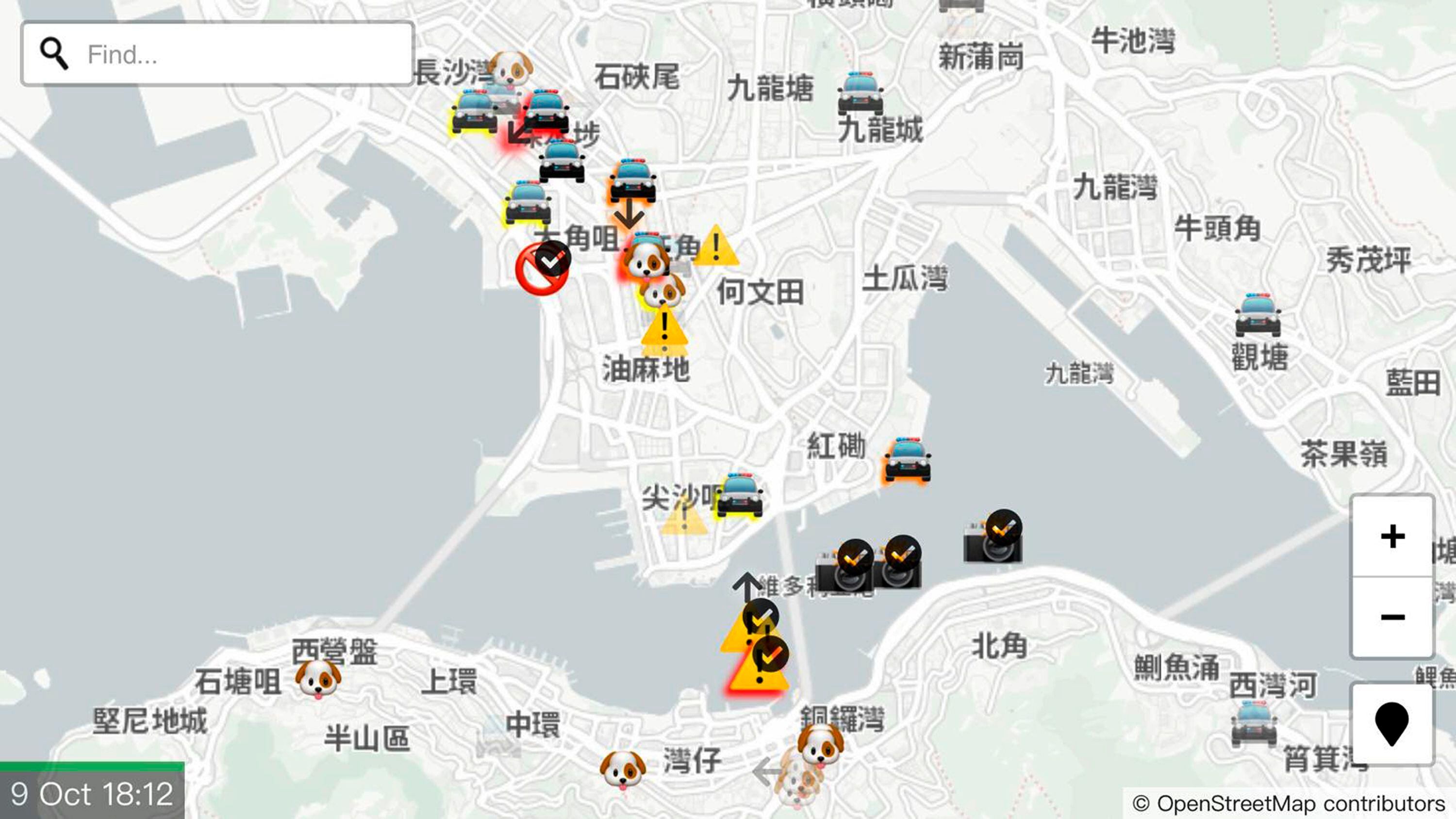Apple this week removed a smartphone app that was used by pro-democracy demonstrators in Hong Kong to track police movements. The app, HKmap.live, was reportedly being used to locate and attack police.
The app’s developers firmly objected to the decision, saying on Twitter that the app actually improved public safety by helping pedestrians, tourists, and people on both sides of the political debate avoid unsafe areas.
“There is 0 evidence to support CSTCB's accusation that HKmap App has been used to target and ambush police, threaten public safety,” the group said, referring to the Hong Kong police’s Cyber Security and Technology Crime Bureau.
Apple ($AAPL) said in a statement that it had learned the app had been used in ways that endangered the police. China’s government-run news outlet said that the company verified CSTCB reports of officers being violently targeted.
The decision to pull the app comes just days after Chinese state media denounced the app, which it said allows “rioters to run wild and avoid law enforcement,” and pressured Apple to remove it.
“The app for rioters has helped them conduct violence and makes one wonder what the motive of Apple is by offering such an app,” the editorial in People’s Daily read. “Has [Apple] become an accomplice of the rioters?”
HKmap.live added that the removal of the app was “clearly a political decision to suppress freedom” and human rights in Hong Kong, which has enjoyed relative autonomy as a Chinese special administrative region for the last two decades.
Apple has been flip-flopping on whether to allow this app in its App Store. Earlier this month, developers tweeted that Apple had restricted the app because the tech giant said it “enables, and encourages an activity - that is not legal,” but the app ultimately did go live on the App Store for a brief time before it was pulled again on Wednesday. The initial ban was widely criticized. Republican Sen. Josh Hawley of Missouri, for instance, asked “Why is it these tech companies always favor the authoritarians at the end of the day?”

Google also this week removed a smartphone game from its Google Play store that lets users role-play as protesters in Hong Kong. The game, The Revolution of Our Times, was pulled because it violated a Goole ($GOOGL) policy that bans games from “capitalizing on sensitive events.”
“After careful review, we found this app to be violating that particular policy and suspended it, as we have done with similar attempts to profit from other high-profile events such as earthquakes, crises, suicides, and conflicts,” a Google spokesperson told Cheddar.
The embroilment of two leading U.S. tech giants in Hong Kong’s political unrest comes as China increasingly — and effectively — pressures commercial entities to avoid taking political stances. Earlier this week, scandal erupted after the general manager of the Houston Rockets posted a tweet in support of pro-democracy protests. The NBA and the general manager, Daryl Morey, largely walked back the statement and apologized for any offense it caused to Chinese basketball fans.
Tiffany & Co., the U.S. luxury jewelry company, was criticized this week after releasing an ad featuring a Chinese model that was viewed as a veiled message in support on Hong Kong demonstrators. The company denied that it was a political statement and said the image was taken before unrest even began. The ad was removed, nonetheless.
Angering Beijing poses a particular challenge for foreign companies given its massive consumer market. Apple reported $52 billion in sales in China in 2018, which was an increase of 16 percent from the year prior. In an earnings filing in August, Tiffany & Co. reported double digit sales growth in mainland China in this year’s second quarter.








